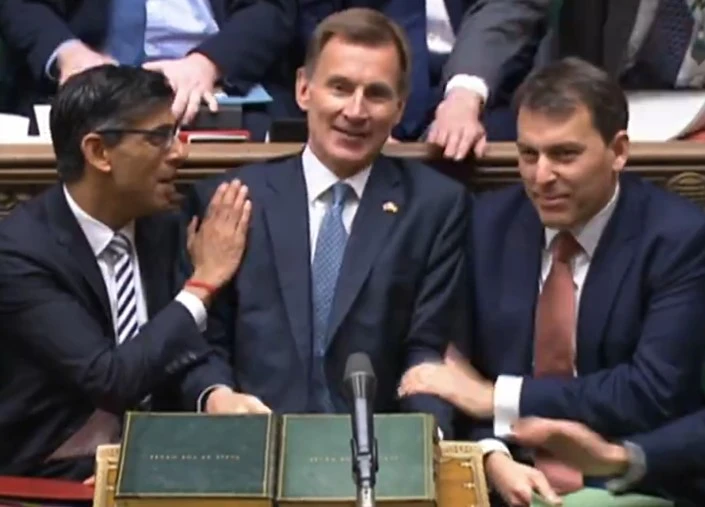Jeremy Hunt’s Autumn Statement contained changes to how the UK’s energy sector, including oil and gas and renewable energy, is being subsidised and taxed. There was a rise in the Energy Profits Levy, or windfall tax, and a reinstatement of the Investment Allowance, a refund through which oil and gas companies recoup the taxes on their excessive profits. These changes continue to facilitate fossil fuel sector profiteering while the development of renewable and affordable energy has been newly undermined, all against a backdrop of fuel poverty and politically motivated austerity.
The rise in the windfall tax, from 25% to 35%, is not the cause for celebration that it appears to be. This is because another policy, the Investment Allowance, now reinstated until 2028, represents a major tax break on windfall profits. As a result, profits that the windfall tax should target remain in the hands of companies as investments in fossil fuel developments in our own backyard. Shell adequately illustrated this when they reported paying zero windfall tax in the UK on record global profits of £26bn by (re)investing in North Sea oil and gas developments.
There are some silver linings, you might say, because the Autumn Statement saw the Investment Allowance reduced from 80% to 29%. In reality, the rise in windfall tax and the reinstatement of the Investment Allowance, have overall increased the amount oil and gas companies can claim back, from £91.25p to £91.40p per £100.
In fact, it was campaigners at Uplift, followed by Labour shadow chancellor Rachel Reeves, who raised the alarm that together, maintaining the 80% Investment Allowance and raising the windfall tax would have seen taxpayers effectively paying energy companies for fossil fuel developments, such as the Rosebank oil field, because of the way the windfall tax and investment allowance interact. Thank you Uplift, and the Windfall Tax Coalition, for exposing this crucial information.
While the Investment Allowance was dropped to 29% for most investments, it has remained at 80% for decarbonisation expenditure. Adding insult to hypocrisy, for every £100 fossil fuel companies spend on decarbonisation, they will be able to deduct £109.25p from their profits. This means, for instance, that the £2-3bn the oil and gas sector has pledged towards decarbonisation, usually for their own infrastructure, will effectively be paid for by the taxpayer if delivered before the 2028 cut off.
Finally, a blow was dealt to the renewable energy sector with the introduction of the Electricity Generator Levy, a windfall tax on low-carbon electricity generation. This tax will see the electricity generation sector charged at 45% for revenues above £75 per MWh. Demonstrating the privilege that comes with fossil fuel energy production, the electricity generation sector will not benefit from sector-specific tax relief as the Investment Allowance will not apply for the electricity generation sector.
These changes are a part of Jeremy Hunt and his government to ‘consolidate’ £55bn, which also includes rolling out £28bn in public spending cuts.
Instead of money becoming available for Energy for All, to immediately insulate Britain’s homes or invest in energy that is affordable and renewable – all of which would boost the economy by loosening the strings on poorer people’s budgets – Jeremy Hunt decided that profits that the windfall tax should target will remain in the hands of companies as investments in earth-wrecking fossil fuel developments in our own backyard, the North Sea.
Claims that these investments will keep our lights on and provide energy security are untrue: North Sea investments will not yield for decades, oil and gas will then be sold on the global market for up to nine times as much as energy from renewable sources. Similarly, the huge investment planned for a new nuclear power station will not power our homes for at least 15 years.
Meanwhile spending on energy efficiency – which yields immediate results – has been postponed to 2025, as millions of people continue to suffer in Europe’s coldest housing stock. This winter, as a result of spiralling energy costs and government inaction, a rise is expected in the already unacceptable annual loss of 10,000 lives from cold homes.
This government and their Chancellor, Jeremy Hunt, are showing the government’s mastery at balancing the books: in the interest of never-wealthier oil and gas companies, at the expense of millions being forced into fuel poverty from soaring oil and gas prices and the millions suffering from climate change, today and for generations to come.


